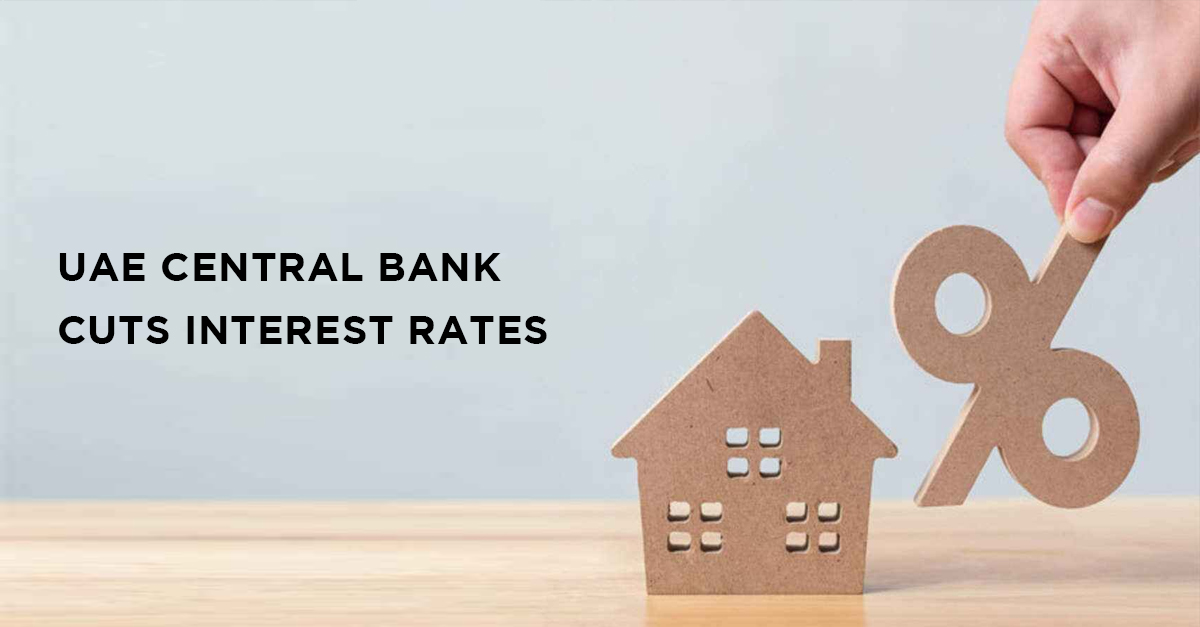UAE central bank cuts interest rates: Is it the right time to take a housing loan?
The COVID-19 pandemic has caused a widespread public health crisis, cutting across geographical boundaries. Based on historical parallels, the health crisis will alleviate over time, but the social and economic impact could have implications that last even longer. Policymakers and governing bodies are therefore equally apprehensive over the domino effect of the pandemic, as much as they are about the health crisis at hand. In response, leading economies have taken proactive measures to offset the imminent financial fallout. These measures range from massive stimulus packages to new monetary policies. Needless to say, the UAE too has announced several interventions in recent days.
The Targeted Economic Support Scheme
The UAE Central Bank has launched a Dh126 billion stimulus package — the highest in the MENA region. Otherwise known as the Targeted Economic Support Scheme, this initiative is expected to bolster the financial market and provide a “temporary relief” to private sector businesses and individual clients for the next couple of quarters at least(1). The package is equally split in two, with Dh50 billion reserved for local banks at zero interest rates and the rest to be added to the banks’ capital buffers. The stimulus package is preceded by the Central Bank’s directive that local banks take an accommodative stance on lending and loan repayment schedules, owing to extraordinary circumstances.
Cuts in interest rates
The directives also include temporary moratorium on loans, deferrals on monthly payments and reduction in fees, among other measures. The highlight, however, is the slashing of interest rates by 50 basis points, following an undertaking by the US Federal Reserve. It’s important to note that this marks the highest interest rate cut by the Federal Reserve since late 2008. However, unlike previous instances, measures have now been taken preemptively, based on tell-tale signs pointing at a recession. This decade-high slashing of interest rates is expected to provide relief to borrowers and invigorate the financial market, in the face of an economic stagnation and possible downturn.
Real estate implications
The UAE Central Bank has laid special emphasis on real estate lending, advising banks to raise the loan-to-value ratio by an additional 5% point for first-time buyers. Currently, for expats, the maximum loan-to-value ratio stands at 80%, on properties worth less than Dh5 million. The corresponding ratio for properties worth Dh5 million and above stands at 65%. Although the off-plan properties tend to have more stringent loan-to-value, the additional 5% is expected to propel the home-buying aspirations of first-time buyers, who were previously unable to meet the down payment requirements.
In another incentive to the regional real estate sector, the Central Bank has upgraded the existing limit on maximum exposure that banks can have to the real estate sector. As soon as the exposure limit surpasses the 20% mark, banks will be allowed to extend till 30%, subject to possession of more capital. Additionally, banks will now be allowed to utilize up to 60% of the capital buffer, or more if the banks are designated as “systemically important” by the Central Bank. These policies are reinforced by the Dh126 billion stimulus package, aimed at providing relief to the operations of these local banks and their capital buffers. The question prospective home buyers are asking themselves is if these additional incentives make this the right time to take a home loan?
What trends can the real estate markets expect – in response to this intervention?
The aforementioned monetary policies are solely aimed at revitalizing the economy, spearheaded by the Central Bank itself – meaning, they carry an intrinsic security factor. The Central Bank has gone a step further to say that these policies will contribute to the affordability of the housing sector without increasing inherent risks. Such no-strings-attached policies, coupled with lowest interest rates, are unique in the industry’s recent past. Furthermore, several Emirate-specific initiatives have been announced to encourage buyers. For example, the Abu Dhabi government has waived off the 2% real estate registration fee for the rest of 2020.
Industry developments in the US, following the slashing of interest rates by the Federal Reserve, serve as a testament to the efficacy of these new policies. Borrowers in the US are exploring the feasibility of refinancing their mortgage in significant numbers, after the Federal Reserve cut the interest rates by 50 basis points, which has taken 30-year mortgage rates to an all-time low. The average 30-year fixed mortgage is now less than 3.5%, which can be leveraged to pay off the mortgage faster by changing to a 15-year mortgage plan(2). In general terms, half a percentage point in interest is a good reason to explore refinancing the mortgage. In the long run, even the savings raked in from a relatively negligible drop in interest rates can make a noticeable difference, which makes this an opportune time to refinance existing mortgage.
Within the context of Dubai, property affordability reached a decade high in 2019 and sustained the momentum until the incidence of COVID-19. Although the transaction volume has declined significantly at the moment, experts opine that the industry is likely to witness a buying spree, once the public health crisis subsides(3). In addition, this pandemic has revealed the administrative flaws in several leading economies across the world, which could encourage a sizable number of expats to invest and settle in the UAE, where the government’s proactive effort to combat the virus have largely been successful so far.
- https://gulfnews.com/business/banking/uae-gulf-central-banks-cut-interest-rates-in-response-to-coronavirus-outbreak-1.70144022
- https://www.forbes.com/sites/zackfriedman/2020/03/11/what-coronavirus-means-for-your-money/#65176201198c
- https://www.arabianbusiness.com/property/443619-dubai-real-estate-industry-can-expect-buying-boom-post-coronavirus




